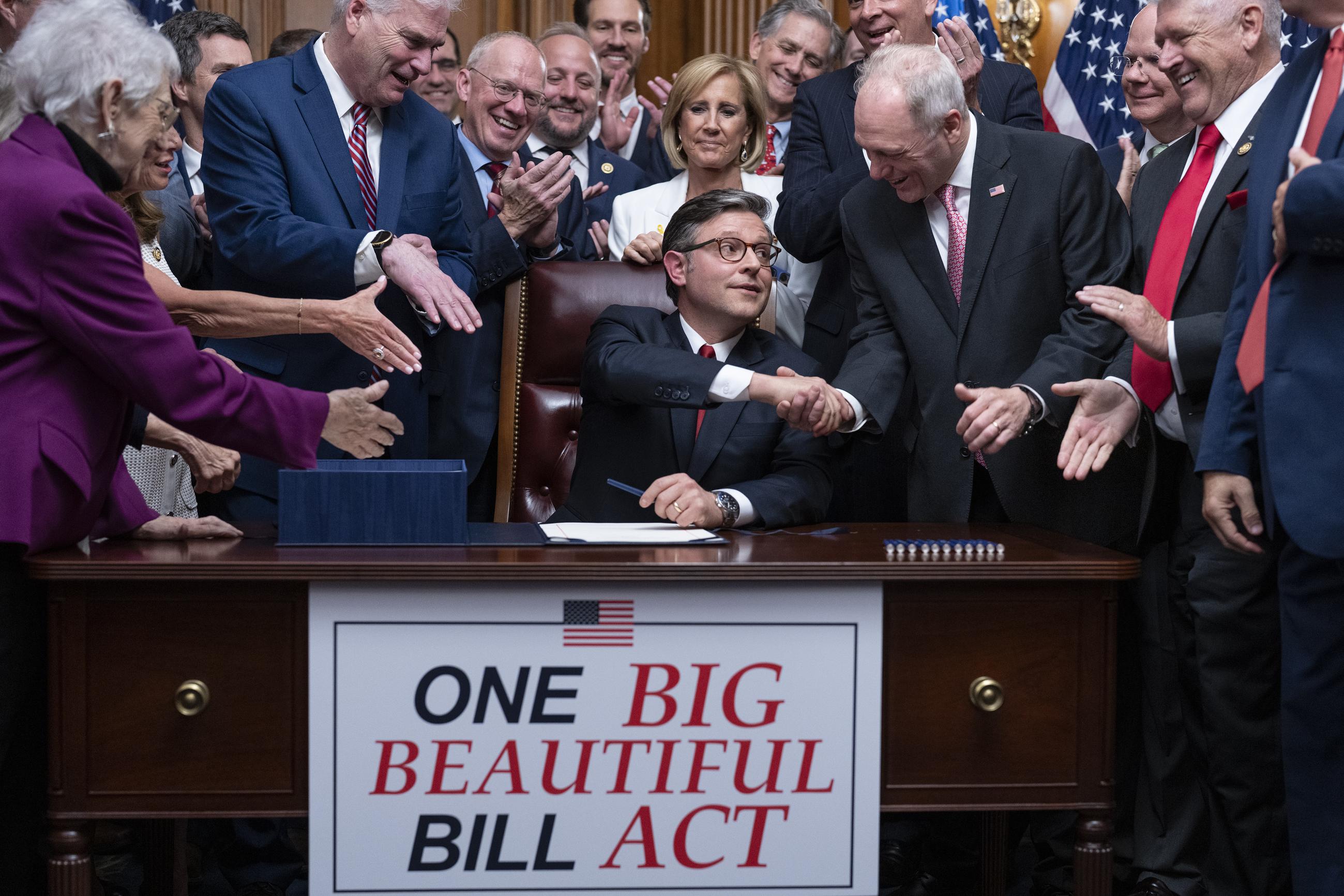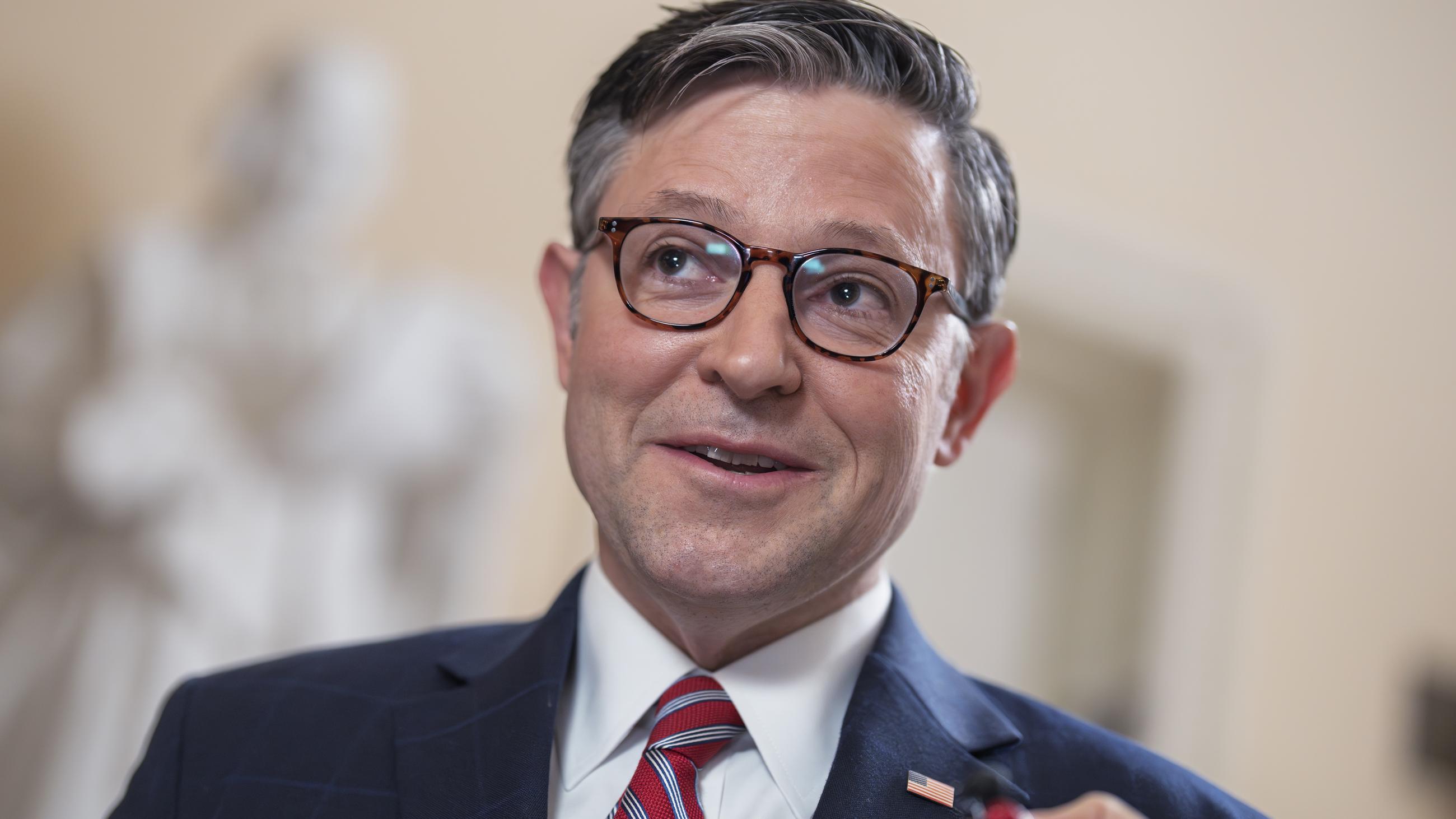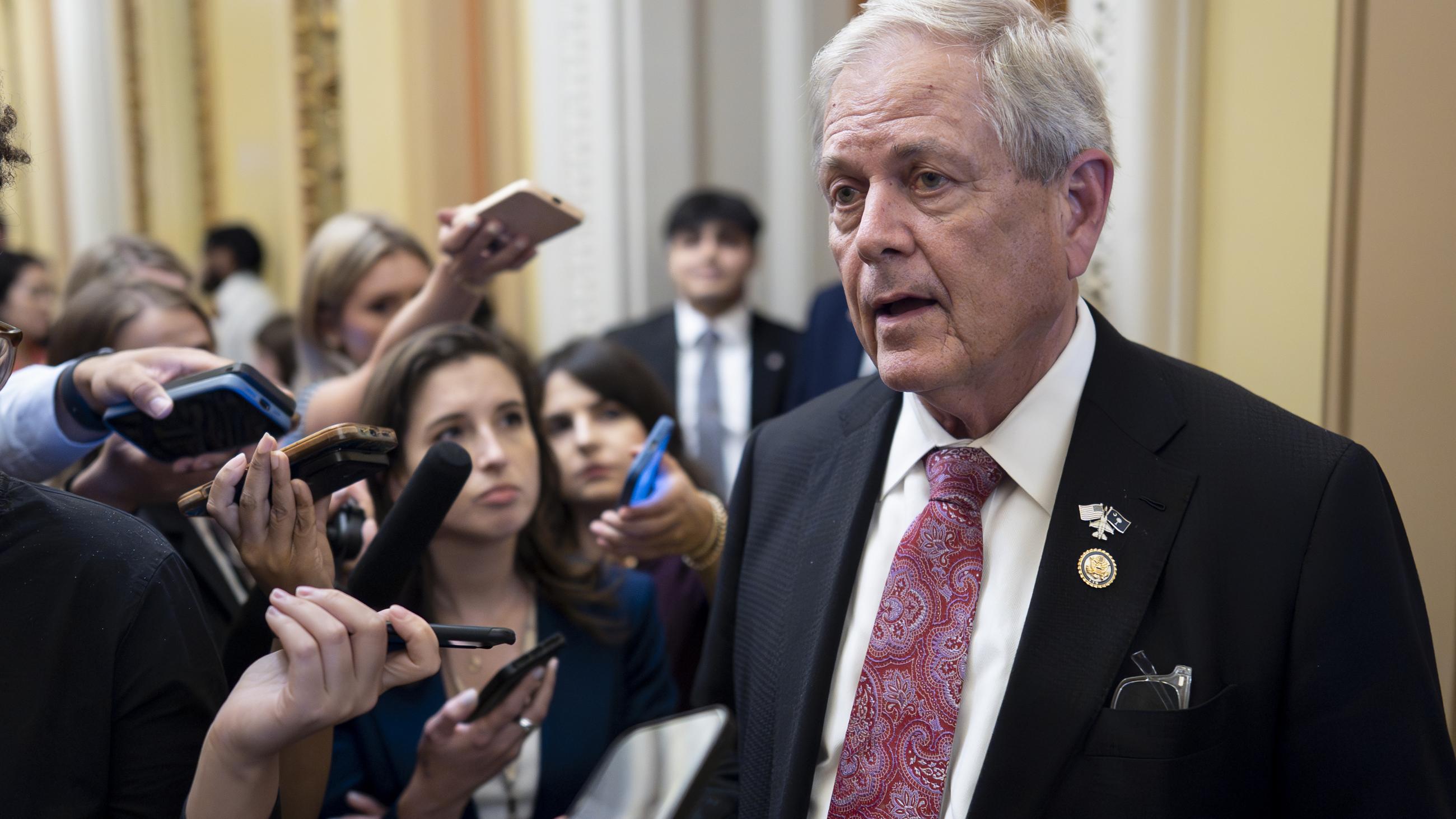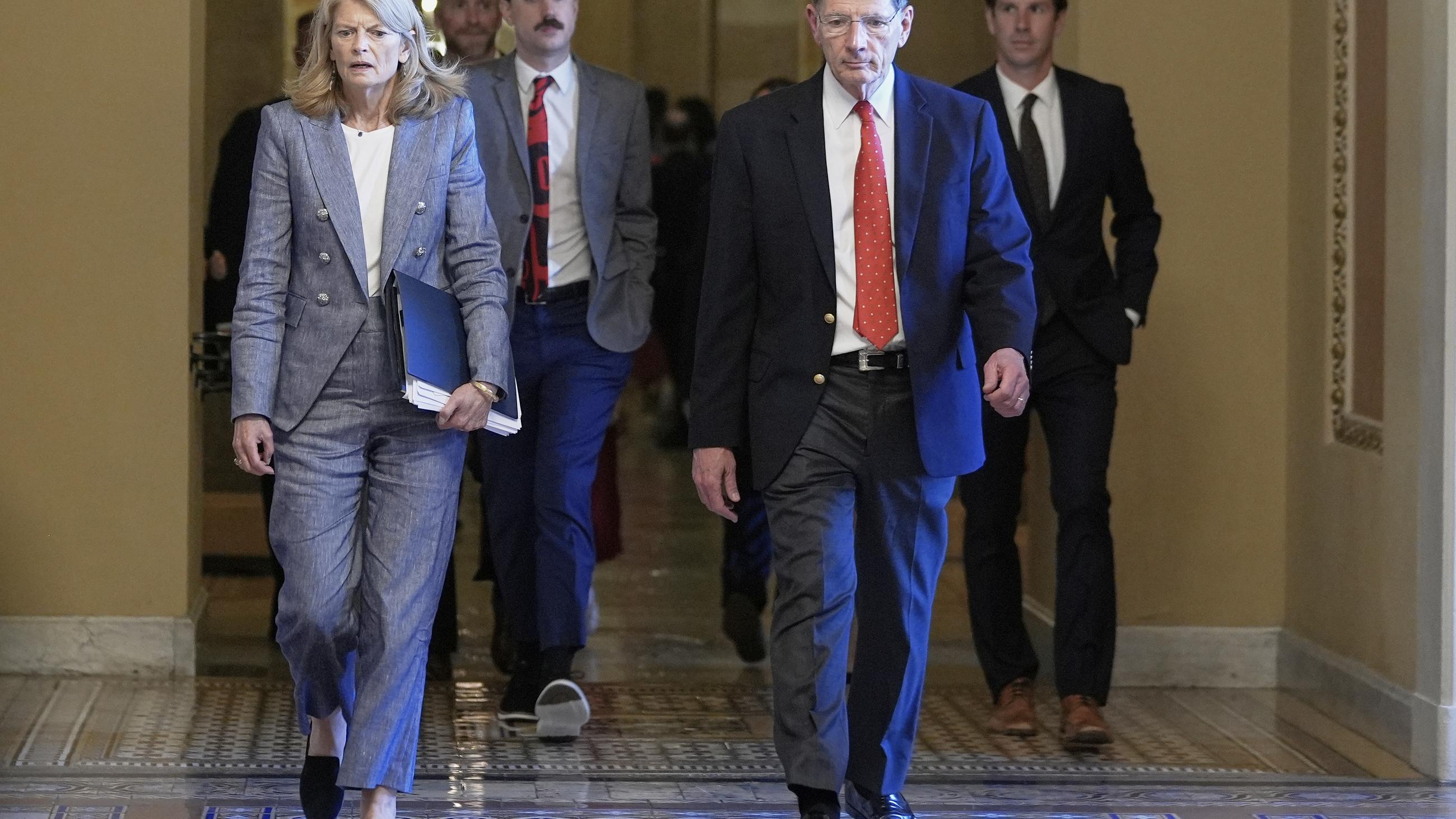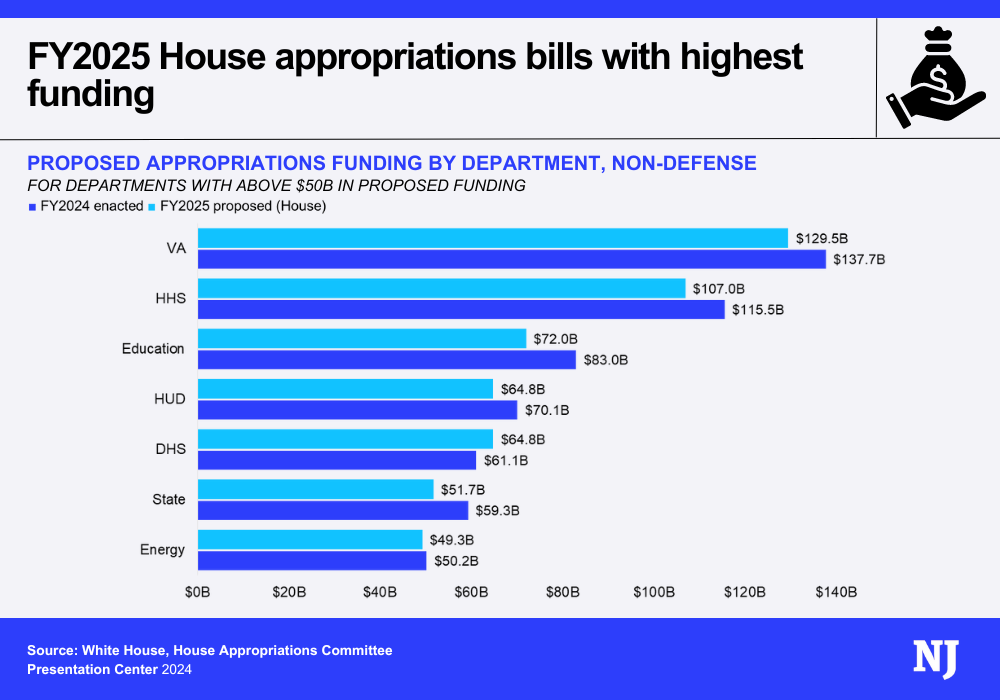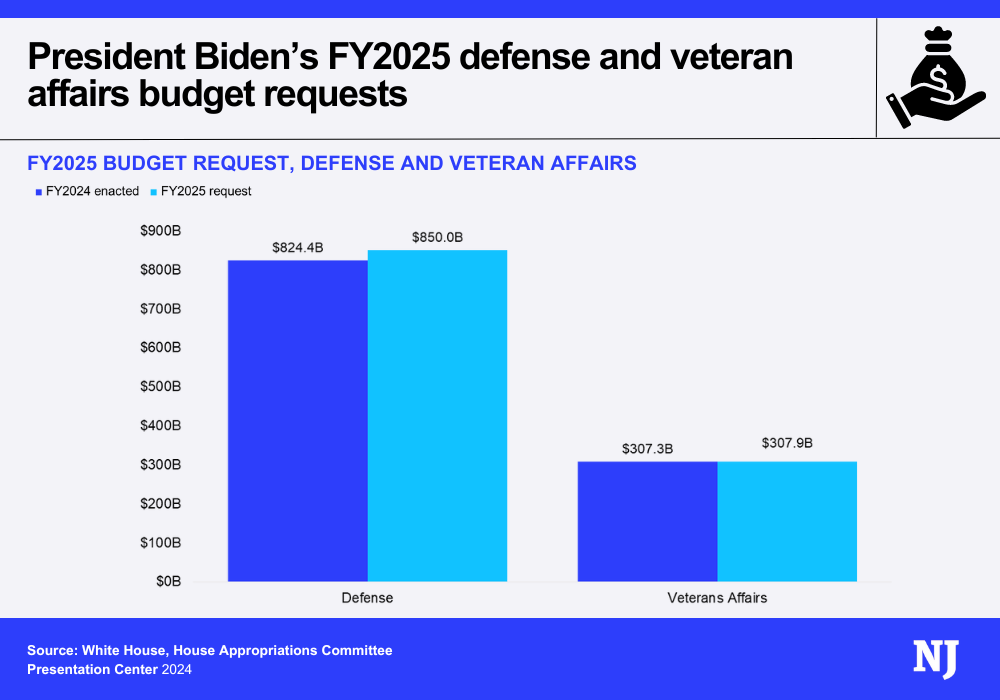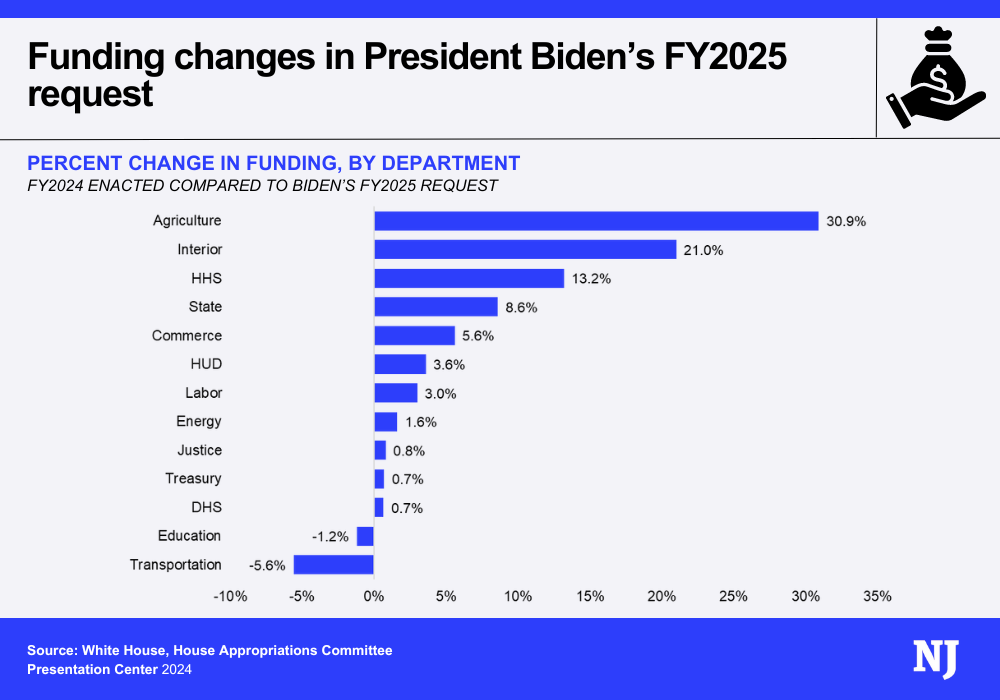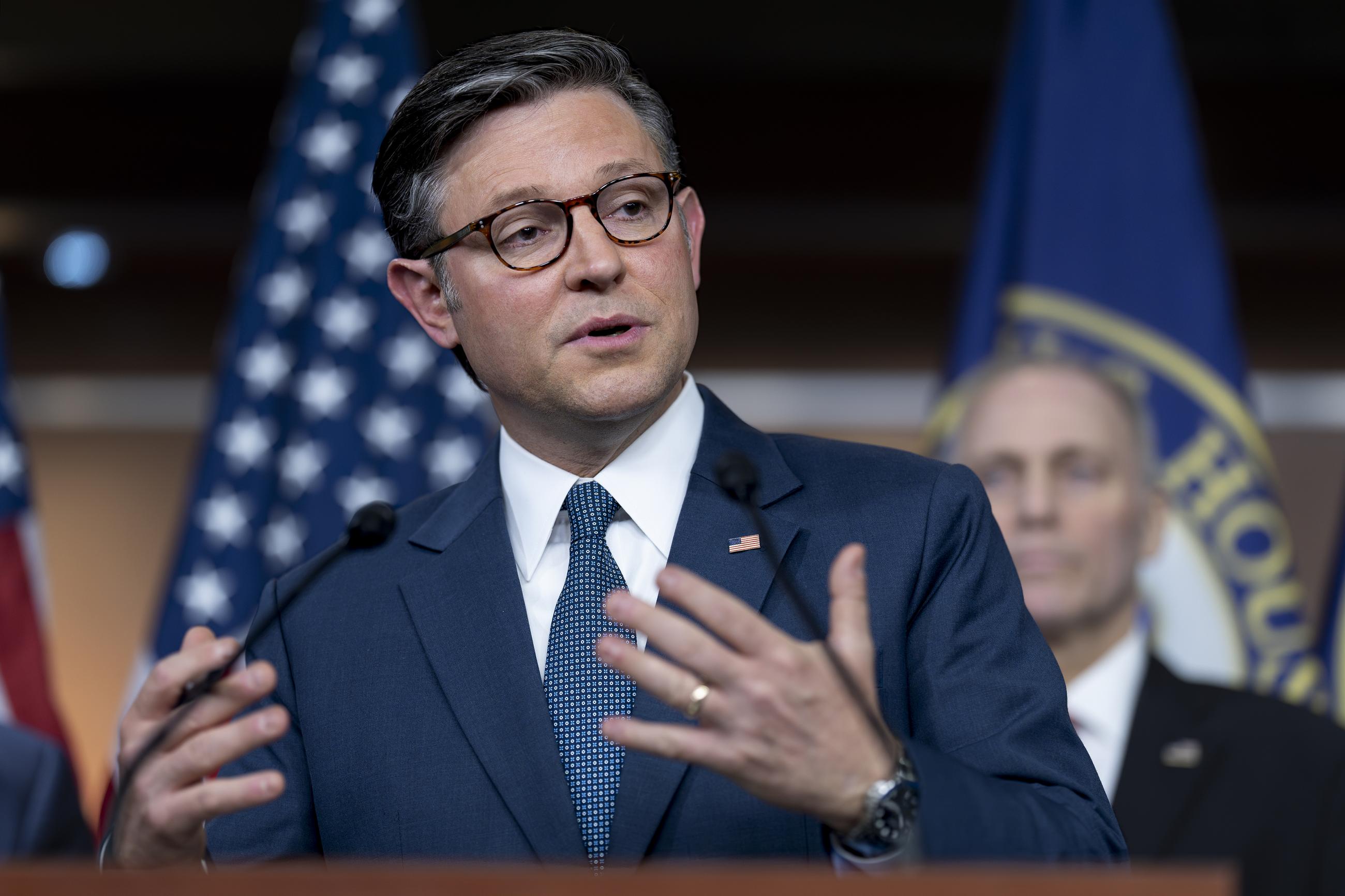House Speaker Mike Johnson remembers the strategic mistake Republicans committed eight years ago when they first passed President Trump’s sweeping tax cuts in late December 2017. It was too late in the cycle to register with a majority of voters, he said, and GOP candidates suffered at the polls, losing 40 House seats in the 2018 midterms.
Johnson said they were not going to make the same mistake again.
Speaking to National Journal after steering the latest tax-cut package through the House Thursday, Johnson emphasized the importance of getting the “One, Big, Beautiful Bill" to Trump’s desk before July 4.
“The reason I put such an aggressive timetable on it is because I knew that we had to get it signed, really by mid-July, so that everybody feels the effects before they go and vote in the midterms,” a weary speaker told National Journal. “So there is a political calculation.”
For months, Trump and congressional leaders made the hard sell to vulnerable members in swing states skeptical of the measure’s cuts to popular entitlements such as Medicaid and nutrition assistance.
Now that the budget-reconciliation bill has passed 218-214, with two Republicans voting against, the task for the GOP is to defend it on the campaign trail. Republicans hope constituents will recognize that the bill keeps intact the tax cuts that were set to expire in December.
Republicans have their work cut out for them. Democrats are already making the bill’s Medicaid cuts an issue for the midterms. Liberal outside group Unrig Our Economy kicked off a $10 million ad buy in May, targeting vulnerable Republicans on the bill’s Medicaid cuts. They’ve since released a host of radio and TV ads targeting GOP Reps. Mariannette Miller-Meeks of Iowa, Don Bacon of Nebraska, Juan Ciscomani of Arizona, and Tom Kean of New Jersey.
Bacon threw in the towel earlier this week, announcing that he would not seek reelection days before he cast his “aye” vote on the legislation.
A hard sell?
The polling doesn't favor Republicans, either. A recent poll from health policy nonprofit KFF found unfavorable views on the bill by a 2-to-1 margin, with 64 percent of Americans disapproving.
A poll from Trump campaign pollster John McLaughlin found that shrinking the individual marketplace was largely unpopular among nearly three quarters of Americans, with more than 60 percent of Republicans and Trump voters disagreeing with the move. And already, lawmakers chose not to renew popular premium tax credits under the Affordable Care Act that expire by the end of the year—which could increase health care costs for individuals as insurance companies scramble to set coverage rates.
But the argument that constituents will feel the brunt of the Medicaid cuts will be a complicated one for Democrats to make, as the provider-tax phase-down implementation will take place in 2028—two elections away from now.
“You’ll see price hikes almost immediately because of the ACA marketplace stuff. And insurance companies are going to set those prices,” said Rep. Ami Bera, co-chair of the Democratic Congressional Campaign Committee's team for competitive races. “So I think a lot of consumers, especially in red states, are going to feel that hit almost immediately in terms of what their cost is.”
Rep. Jeff Van Drew of New Jersey was among the House Republicans wringing their hands over the cuts to Medicaid as lawmakers drafted the House version earlier this year.
“I do not want a blueprint for electoral disaster,” Van Drew told reporters in early May. “If we're not careful, we're going to ensure we lose the midterms by doing the wrong thing.” However, after voting for the bill Thursday, the New Jersey Republican went on defense.
“We have not touched Medicare, we have not touched Social Security, and with Medicaid we are still helping the institutions,” Van Drew said. “We’re not cutting qualified legal institutions or qualified people off of Medicaid.”
The impacts of passing such a large, controversial bill are also likely to be felt in statewide races. A number of members are aiming for higher offices—Senate seats and governorships—and will be put in the hot seat over the more potentially harmful parts of the bill.
“There's a lot more we can do in health care—there's no question about that,” said Rep. Buddy Carter, who launched a Senate run in Georgia earlier this year. “But what we did got us the number of votes that we needed to get it out of the Senate. … I’m not sure we could have [written the Senate version] initially and gotten it through the House.”
Caving under pressure
A number of initial critics of the bill eventually folded due to assurances from leadership and the White House that their priorities and concerns would be addressed through future reconciliation bills or executive action. Johnson said he was aiming for “at least two more” such bills, one in the fall and one the following spring.
The bill’s final version will likely be one of the few major pieces of legislation this Congress passes, given its ultra-narrow majority. The measure extends household tax breaks implemented as part of Trump's 2017 tax-code overhaul, provides billions of dollars in new funding for the White House’s border and immigration policies, and raises the nation’s borrowing limit by $5 trillion.
Passage almost looked like it wasn’t going to happen for Johnson. And then, the tide started to shift.
Emerging from a negotiation meeting on Wednesday, House Freedom Caucus members dug down even further in the opposition to the bill, telling reporters they would vote down a procedural measure. Still, Johnson pushed ahead, calling for the vote anyway.
A remaining group of holdouts withheld their votes or voted against the procedural measure as they continued negotiating with leadership through the night. Four conservative members—Reps. Keith Self, Andrew Clyde, Victoria Spartz, and Thomas Massie—all initially voted against the rule governing debate on the bill, along with moderate Rep. Brian Fitzpatrick. Massie eventually caved to support the rule.
Eight Republicans—Reps. Josh Brecheen, Chip Roy, Scott Perry, Michael Cloud, Tim Burchett, Eric Burlison, Andy Harris, and Bob Onder—had initially withheld their vote.
Trump continued to amp up pressure through social media, posting on Truth Social to convince holdouts to vote for the bill.
"What are the Republicans waiting for???” Trump wrote. “What are you trying to prove??? MAGA IS NOT HAPPY, AND IT’S COSTING YOU VOTES!!!"
One by one, these members started to fold.
Rep. David Valadao, who was one of the first Republican House members to openly oppose the Senate bill over the upper chamber’s deeper Medicaid cuts, ultimately got to "yes" on both the procedural vote and the final vote. Others, including Clyde, explained in statements that after getting assurances from the president on their priorities, they would be voting to move forward with the bill.
Johnson’s victory lap
Eventually, Johnson announced he had the votes.
Others who had initially voted "no" flipped their votes, and the remaining holdouts also voted for the bill. The bill passed Thursday afternoon with only two Republicans—Fitzpatrick and Massie—voting against it.
Voting for the bill gives holdouts one electoral advantage: the diminished threat of a primary from a Trump-backed candidate. That might be enough for most of them, as an overwhelming proportion of GOP-held districts are solidly red.
The legislation also scored a big win for Republicans from high-tax, blue-state districts, raising the cap on the state and local tax deduction from $10,000 to $40,000 for filers making less than $500,000 per year. The cap reverts back to $10,000 in 2030, however. GOP members from states such as New York, New Jersey, and California had pressed leadership and the administration hard to modify the cap ever since it was implemented in the 2017 overhaul.
Rep. Mike Lawler, whose New York City-area district has been hit hard by the cap, called the modification an accomplishment he and others in the “SALT Caucus” can take back to voters.
“It is a win for New Yorkers; it is a win for my constituents, certainly,” Lawler told reporters. “And when they go to file their tax returns next April, they’re going to see a massive tax cut because of the fact that we were able to lift the cap on SALT.”
At the very least, Johnson doesn’t seem too worried about the midterms. The Louisiana Republican noted that Republicans “have a lopsided map” from the 2024 elections, with “three House Republicans in [Kamala] Harris districts.”
But for a speaker who had been awake for more than 24 hours and who lost count of the Celsius energy drinks he consumed trying to bring the bill to the finish line, any predictions should be taken with a grain of salt.
“I haven’t been asleep since 5:30 on Wednesday,” he told National Journal with a chuckle. “So I can’t be held responsible for any response I just gave you.”

